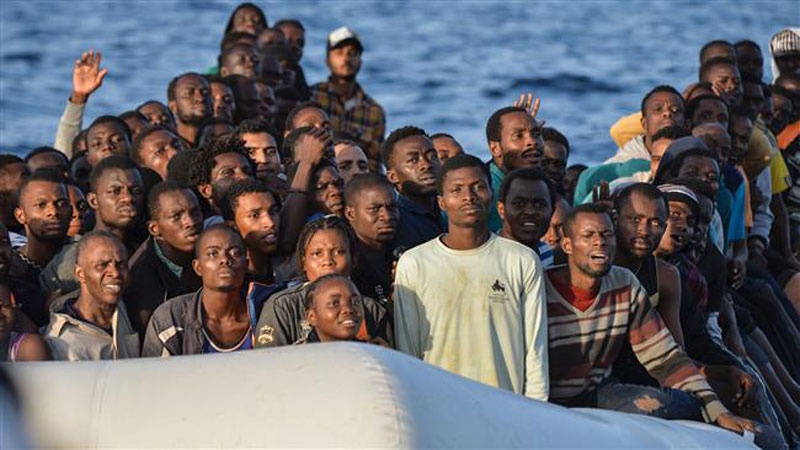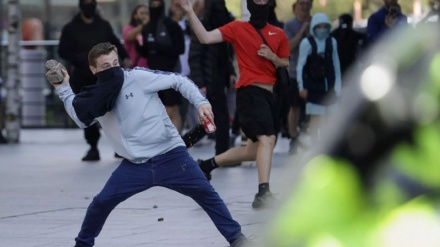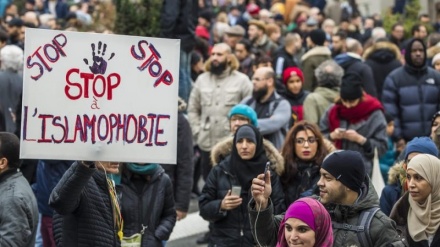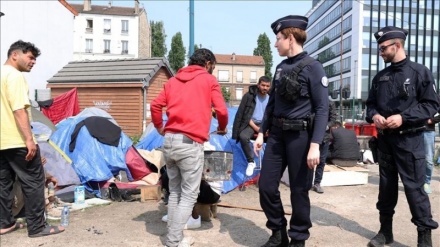Italian police deny allegations of abusing refugees
-

This image taken in the Mediterranean Sea, on November 3, 2016 shows asylum-seekers sitting in a rubber boat waiting to be rescued by the ship Topaz Responder run by Maltese NGO Moas and the Red Cross in Italy. (By AFP)
Italy’s police have rejected a report by prominent rights group Amnesty International that their forces used violence and brutality in dealing with refugees.
“I categorically deny that violent methods are used on migrants,” Italian Police Chief Franco Gabrielli said in a statement on Thursday.
According to Press TV, earlier in the day, Amnesty said Italian police have used measures which may amount to “torture” while attempting to fingerprint refugees trying to enter the country.
The allegations of abuse included beatings, electric shocks and sexual humiliation in cases involving mainly African asylum seekers who wanted to cross Italy to reach other European states.
Gabrielli said his officers, who worked alongside European Union officials and human rights groups in the refugee centers, had displayed enormous responsibility in their duties regarding the refugees.
Following the closure of all land crossings, the sea route across the Mediterranean to Italy became the main way for asylum-seekers fleeing conflict and persecution in Africa to reach Europe in search of a better life.
Until last year, most refugees refused to be registered in Italy and headed straight for richer European states in the north.
However, the refugees landing in Italy, and fellow frontier state Greece, were required by the European Union to be registered and fingerprinted by police.
“In their determination to reduce the onward movement of refugees and migrants to other member states, EU leaders have driven the Italian authorities to the limits, and beyond, of what is legal,” Amnesty researcher Matteo de Bellis said.
Amnesty also condemned Italy’s assessment process for new arrivals.
“People, often exhausted and traumatized from their journeys and without access to adequate information or advice on asylum procedures, have to answer questions with potentially profound implications for their futures,” it said.
The European Commission said EU agencies and aid groups on the ground in Italy had not reported any wrongdoing, adding, however, that all abuse reports will be considered with utmost importance.
“Any form of violence or abuse of rights of refugees is unacceptable and we take any allegation seriously. We will beliaising with the Italian authorities to ensure that none of these claims are founded,” a Commission spokeswoman said.
Some 4,220 asylum seekers have lost their lives making the perilous journey across the Mediterranean Sea to Europe so far this year, according to UN counts.
ME


